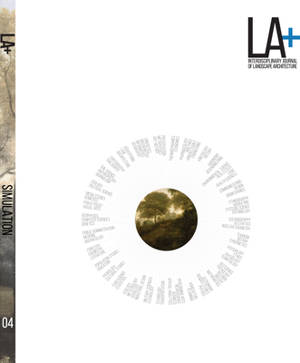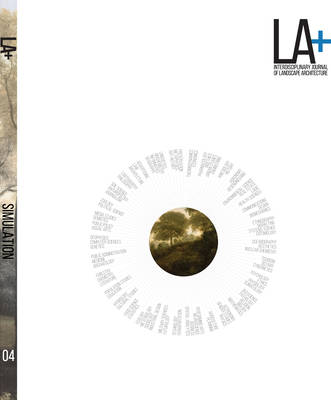
- Retrait gratuit dans votre magasin Club
- 7.000.000 titres dans notre catalogue
- Payer en toute sécurité
- Toujours un magasin près de chez vous
- Retrait gratuit dans votre magasin Club
- 7.000.0000 titres dans notre catalogue
- Payer en toute sécurité
- Toujours un magasin près de chez vous
27,95 €
+ 55 points
Description
Our epoch has been dubbed the Anthropocene Era to mark the significance of human activities as the greatest force of environmental change. The distinctions between biology/technology, organic/synthetic, and natural/artificial are increasingly impossible to maintain. Cloned sheep, climate models, digitally-printed tissue and lab-grown meat - this is not the nature of our predecessors. This issue of LA+ addresses the theme of SIMULATION in terms of how recent technologies have changed how we understand the nature of nature. From Plato's Cave to Baudrillard's "Simulacrum," simulations were historically understood as counterfeits or facsimiles and were based on the distinction between a model and its copy. Simulations remain central to mediations between reality and its representation; however, the latest forms of simulation--whether genetic manipulation or computer modeling--are not seen as impediments to truth and knowledge but as tools to uncover the complexities of nature. A diverse list of contributors critically investigates the theme through a myriad of lenses including biology, computer sciences, engineering, environmental science, industrial design, philosophy, planning, among other fields. In a brief snapshot of the LA+ SIMULATION issue: - Through an historical analysis of land use classification systems, architect and planner Robert Pietrusko examines the fallacy of "raw data" by examining how representational techniques become reality; - historian of science Paul Edwards elucidates the making of 'control earths' in climate models; - philosopher Etienne Benson tracks the making of the 'minimal animal' in ecological modeling; - architect and civil engineer Eduardo Rico and architect Enriqueta Llabres Valls reveal the power of models as surrogates in shaping the material world; - historian Gideon Fink Shapiro finds the function of fiction in the landscape imagination; - by interrogating synthetic biology, theorist Pablo Schyfter demonstrates the interdependency of representational systems and the knowledge they produce; - artist Mark Nystrom sumptuously captures the hidden patterns of our ever-changing environment; and - interviews with philosophers Koert van Mensvoort and Eric Winsberg illuminate the role of simulation in how we understand the nature of reality. LA+ SIMULATION is guest edited by Karen M'Closkey and Keith VanDerSys.
Spécifications
Parties prenantes
- Auteur(s) :
- Editeur:
Contenu
- Nombre de pages :
- 120
- Langue:
- Anglais
- Collection :
Caractéristiques
- EAN:
- 9781939621405
- Date de parution :
- 15-10-16
- Format:
- Livre broché
- Format numérique:
- Trade paperback (VS)
- Dimensions :
- 218 mm x 267 mm
- Poids :
- 589 g

Les avis
Nous publions uniquement les avis qui respectent les conditions requises. Consultez nos conditions pour les avis.






